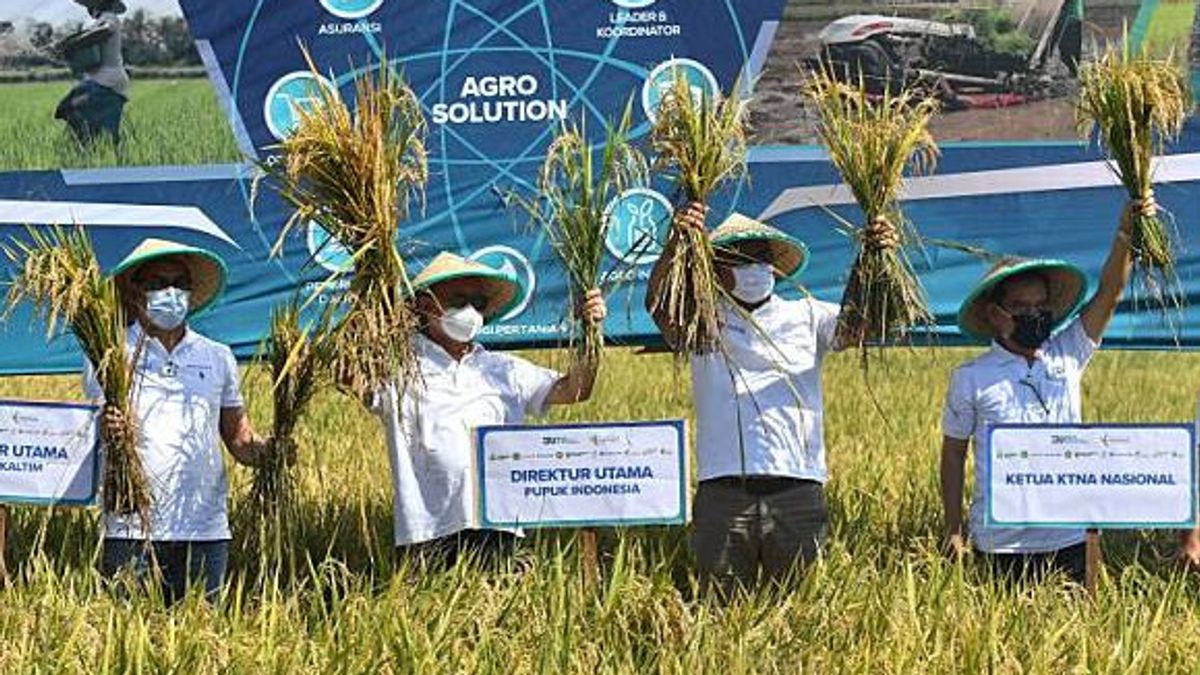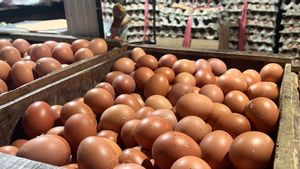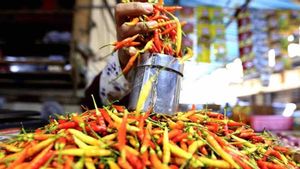JAKARTA - The agro-industrial sector continues to make a significant contribution to the growth of the non-oil and gas processing industry and the national economy. In the second quarter of 2021, the sector contributed 50.59 percent to the GDP growth of the non-oil and gas processing industry and 8.77 percent to the national gross domestic product (GDP).
Plt. The Director General of Agro Industry at the Ministry of Industry, Putu Juli Ardika, said that 38.42 percent of the GDP growth of the non-oil and gas processing industry was contributed by the food and beverage industry sub-sector.
The next contribution from the tobacco processing industry is 4.35 percent, then the paper and paper goods industry is 3.86 percent, the wood and wood products industry is 2.54 percent, and the furniture industry is 1.42 percent.
"In general, the GDP growth of the agro-industrial sector shows an improving performance. This needs to be maintained and continuously improved. Therefore, it is necessary to work hard in spurring productivity and competitiveness," he said, in Jakarta, Friday, September 17.
Referring to data from the Central Statistics Agency (BPS), Putu said, Indonesia's trade balance in the second quarter of 2021 recorded a surplus of US$1.3 billion. Much improved compared to the same period in 2020, which experienced a deficit of US$0.6 billion.
"The agro-industrial sector in this case deserves appreciation because in the second quarter it contributed US$19.64 billion or 28.24 percent of national exports," he said.
Putu said, the gain could not be separated from the support in the upstream sector, in this case the agricultural sector. As an effort to boost the performance of the agro industry sector, the Ministry of Industry continues to encourage improvement and strengthening through the implementation of industry 4.0.
Furthermore, Putu said, optimizing the use of industrial technology, utilizing natural resources for industry, fostering green industries and strategic industries, as well as increasing the use of domestic products.
In addition, planning and fostering industrial standardization, fostering industrial services, as well as supervising and controlling industrial business activities in the forest and plantation product industries, the food industry, marine products, and fisheries, and the beverage industry, tobacco products and fresheners.
According to Putu, the agro industry as a downstream industry from the agricultural sector has made a strategic policy by targeting the transfer of imported raw materials for several commodities with domestic products by 22 percent.
"Of course this is a big opportunity for the upstream sector such as agriculture to fulfill the available market niche in supplying industrial raw materials," he explained.
Furthermore, Putu said, the Ministry of Industry is also carrying out the mandate of the Memorandum of Understanding between the Ministry of Industry and the Ministry of Agriculture which aims to synergize the duties and functions of the two institutions in an effort to support the development and development of the agro industry in the future.
"The scope of the joint agreement includes increasing production, increasing quality, added value, and competitiveness of agricultural products as industrial raw materials, increasing human resource competence (HR), increasing agricultural business partnership networks with industry, exchanging data and information, regulatory synergies. and standards in development, as well as the development of agribusiness and agro-industry," he explained.
In addition, Putu said, in maintaining the continuity of supply and demand, the government is currently working on a commodity balance policy, as stated in Government Regulation Number 28 of 2021 concerning the Implementation of the Industrial Sector as a derivative of the Job Creation Act.
"The balance sheet will serve as a common guide for all stakeholders in the context of making decisions regarding product quality regulation that can be used as raw materials and industrial auxiliary materials as well as being the main reference for the government and business actors in setting export-import quotas for all commodities," he said.
Putu said that in its preparation, the government will involve all stakeholders, including associations and industry players, so that the data held by the government will have a high level of accuracy, according to needs.
"To answer the homework from the commodity balance, we also invite representatives from the Indonesian Food and Beverage Entrepreneurs Association (GAPMMI) who will share information related to challenges from the industrial sector, including regarding the sustainability of raw material supply, both in terms of quality and quantity," he said.
The English, Chinese, Japanese, Arabic, and French versions are automatically generated by the AI. So there may still be inaccuracies in translating, please always see Indonesian as our main language. (system supported by DigitalSiber.id)













